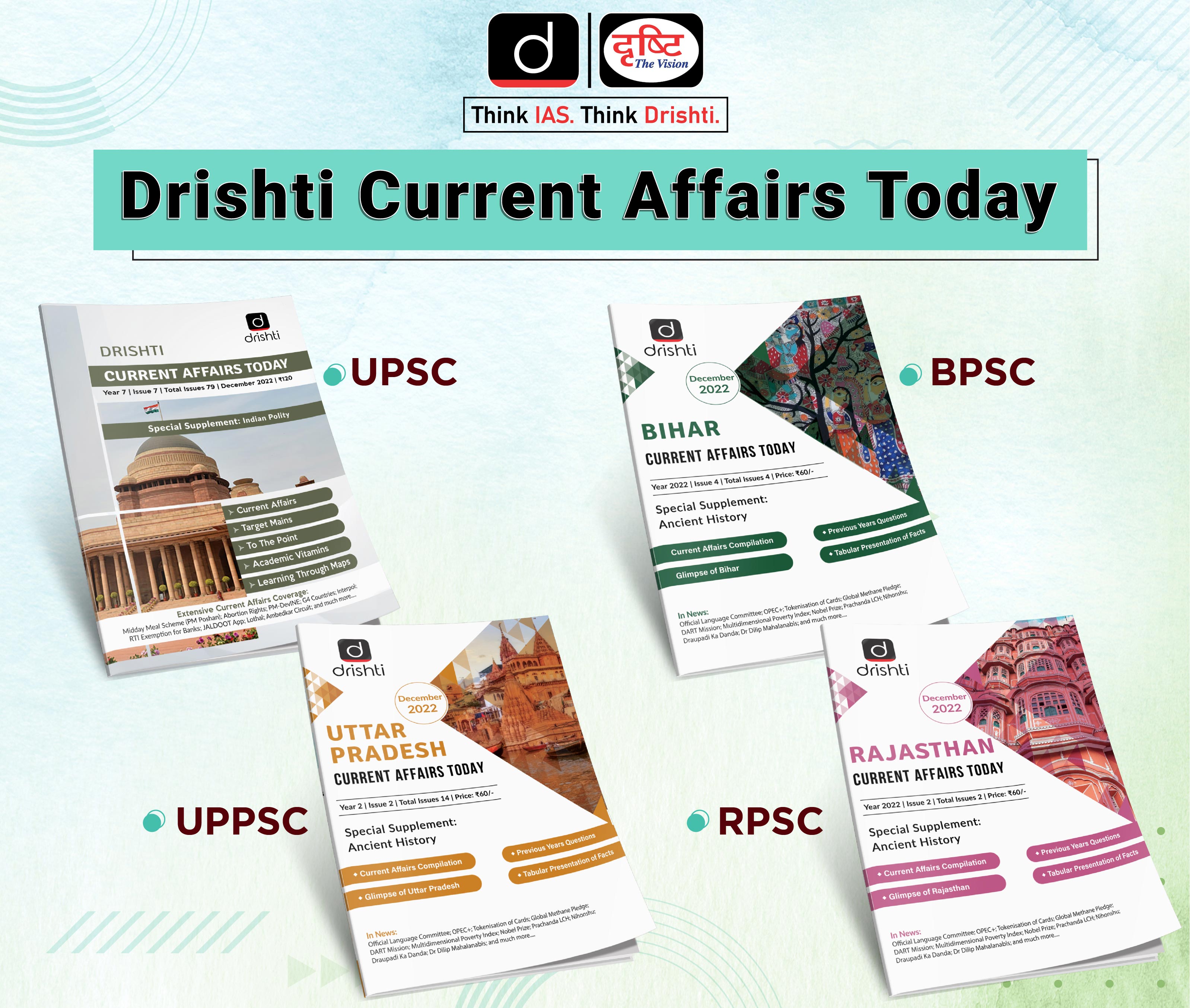Rajasthan Switch to Hindi
Auction of Mine Blocks in Rajasthan
Why in News?
The Rajasthan government has decided to expedite delineation work for the auction of minor and major blocks in the state.
Key Points
- To combat illicit mining activities, the government will focus on getting ready and selling off numerous mining sites.
- The drilling for mineral exploration and analysis of reports will help combat illegal mining of valuable minerals, leading to increased revenue and job opportunities in the state.
- The government has asked officials to develop a water harvesting system in the offices and areas of the mineral department.
- Additionally, officials were directed to ensure efficient operation of the e-filing system in department offices and reduce processing times.
- Rajasthan is one of the richest states in availability and variety of minerals in the country, producing over 57 different minerals. The mines department earned a revenue of over Rs 7,490 crores during 2023-2024.
- The mines department has drawn out a plan aimed at ensuring daily monitoring by preparing a road map for exploration, drilling, preparing blocks and plots for auction, making an auction calendar, and revenue collection.
Illegal Mining
- Illegal mining is the extraction of minerals, ores, or other valuable resources from land or water bodies without the necessary permits, licenses, or regulatory approvals from government authorities.
- It can also involve the violation of environmental, labor, and safety standards.
- Laws Related to Mining in India:
- The entry at serial No. 23 of List II (State List) to the Constitution of India mandates the state government to own the minerals located within their boundaries.
- The entry at serial No. 54 of List I (Central List) mandates the central government to own the minerals within the exclusive economic zone of India (EEZ).
- In pursuance to this Mines & Minerals (Development and Regulation) (MMDR) Act of 1957 was framed.
- The power to frame policy and legislation relating to minor minerals is entirely delegated to the State Governments while policy and legislation relating to the major minerals are dealt by the Ministry of Mines under the Union Government.


Uttarakhand Switch to Hindi
Verification Drive of Outsiders in Uttarakhand
Why in News?
According to the Chief Minister of Uttarakhand, the Uttarakhand Police will resume the verification drive to confirm the identity of people coming from other states and living in the state after the conclusion of the Lok Sabha elections.
Key Points
- The objective of this drive is to maintain law and order and check the credentials of outsiders.
- It has come to light that people from outside the state commit criminal acts in the state and leave. Many times, terrorists have also been apprehended by the police of Uttarakhand as well as other states.
- According to the officials, the verification drive will be restarted once the Model Code of Conduct (MCC) imposed by the Election Commission of India is lifted after declaration of the results on 4th June 2024.
- Uttarakhand voted in the first of the seven-phase Lok Sabha elections on 19th April 2024.
Model Code of Conduct (MCC)
- The MCC is a consensus document. The political parties have themselves agreed to keep their conduct during elections in check and to work within the Code.
- It helps the EC in keeping with the mandate it has been given under Article 324 of the Constitution, which gives it the power to supervise and conduct free and fair elections to the Parliament and State Legislatures.
- The MCC is operational from the date on which the election schedule is announced until the date of the result announcement.
- The government cannot announce any financial grants, promise construction of roads or other facilities, and make any ad hoc appointments in government or public undertaking during the time the Code is in force.


Jharkhand Switch to Hindi
Jharkhand CM Interim Bail Plea
Why in News?
Recently, the Enforcement Directorate (ED) has opposed interim bail to former Jharkhand Chief Minister Hemant Soren.
Key Points
- According to ED, Hemant Soren was guilty of the offence of money laundering for which he was arrested in January 2024.
- Interim bail is granted temporarily during the pendency of a case when regular bail cannot be immediately obtained.
- The term "interim bail" is not explicitly defined in the Code of Criminal Procedure (CrPC).


Haryana Switch to Hindi
Enforcement of Criminal Laws in Haryana
Why in News?
The government of Haryana has created a plan for the enforcement of three recently introduced criminal laws: the Bhartiya Nyaya Sanhita 2023, the Bhartiya Nagrik Suraksha Sanhita 2023, and the Bhartiya Sakshya Adhiniyam, 2023.
Key Points
- Haryana police department was intensifying capacity-building initiatives and preparations for enforcing three new criminal laws.
- Prioritizing the training of master trainers and police officials, the department aims to ensure the effective enforcement of these new regulations.
Bhartiya Nyaya Sanhita Bill, 2023 (BNS)
- It is one of the three criminal law bills introduced by the Union Government to replace the era-old Indian Penal Code, 1860 (IPC).
- BNS was passed in Lok Sabha on 20th December 2023 and in Rajya Sabha on 21st December 2023.
- Apart from amendments it aims to add several offences in the ordinary law which were either part of any statute or was an offspring of precedents declared by the Supreme Court of India.
Bhartiya Nagrik Suraksha Sanhita 2023
- The Bharatiya Nagarik Suraksha (Second) Sanhita, 2023 (BNSS2) replaces the Criminal Procedure Code, 1973 (CrPC) and introduces significant alterations including:
- Detention Conditions: The BNSS2 alters rules for undertrials, restricting release on personal bond for those accused in severe offenses, including life imprisonment cases and individuals facing multiple charges.
- Medical Examination: It broadens the scope of medical examinations, allowing any police officer (not just a sub-inspector) to request one, making the process more accessible.
- Forensic Investigation: Mandates forensic investigation for crimes punishable by at least seven years' imprisonment.
- Sample Collection: Extends the power to collect finger impressions and voice samples.
- Timelines: The BNSS2 introduces strict timelines: medical reports for rape victims within 7 days, judgments within 30 days (extendable to 45), victim progress updates within 90 days, and charge framing within 60 days from the first hearing.
- Court Hierarchy: The CrPC organizes India's criminal courts hierarchically, from Magistrate’s Courts to the Supreme Court.
Bhartiya Sakshya Adhiniyam, 2023
- The Bharatiya Sakshya (Second) Bill, 2023 (BSB2) replaces the Indian Evidence Act, 1872 (IEA). It retains most provisions of the IEA including those on confessions, relevancy of facts, and burden of proof.


Uttar Pradesh Switch to Hindi
Uttar Pradesh Industry 4.0
Why in News?
The Uttar Pradesh nodal technical university has tied up with technology major International Business Machines (IBM) Corporation for Artificial Intelligence (AI) and Cloud computing training to align the future workforce with the modern Industry 4.0 concept.
- The state is also pushing for the ‘One District, One Incubator’ scheme.
Key Points
- With AI investment in India expected to reach USD 5 billion by 2027, the Uttar Pradesh government aims to leverage this expanding industry to boost employment opportunities, encourage self-employment, and promote the growth of startups.
- State’s Abdul Kalam Technical University (AKTU) has signed a Memorandum of Understanding (MoU) with IBM for free online courses in such programmes across more than 500 affiliated colleges.
- According to a joint study released recently by Intel and International Data Corporation, AI spending in India is expected to grow 31.5% from 2023.
- The growth is highest among the eight countries surveyed — Australia, India, Indonesia, Japan, South Korea, Malaysia, Singapore, and Taiwan.
- Industry 4.0 refers to the integration of intelligent digital technologies into manufacturing and industrial processes.
- It covers a set of technologies spanning industrial IoT (internet of things) networks, AI, big data, robotics, automation.
- As the state has the country’s 4th largest startup ecosystem, the government is taking steps to integrate education with incubators and facilitate angel funding to business ideas.
- It is planning to set up an incubator at every higher educational institution across 75 districts. Currently, over 60 incubators are operational in the state.
- The state boasts of about 10,000 recognised startups, of which 50% have emerged from Tier-II and Tier-III cities. Nearly 4,300 startups are being run by women entrepreneurs.
- UP is home to eight of the total 108 unicorns in India, such as Paytm, Paytm Mall, India Mart, Moglix, Pine Labs, Innovaccer, InfoEdge, and Physics Wallah.
Unicorn
- A unicorn is any privately owned firm with a market capitalisation of more than USD 1 billion.
- It denotes new entities dedicated to offering creative solutions and new business models, among other things.
- There are several categories like fintech, Edtechs, B2B (Business-to-Business) companies, etc.


Chhattisgarh Switch to Hindi
Mine Auction in Chhattisgarh
Why in News?
The lithium mine in Chhattisgarh's Korba district, which was delayed because of the Lok Sabha elections, is expected to be put up for auction in the coming month of 2024.
Key Points
- In March 2024, the Ministry of Mines had floated a tender for the auction, in which several companies, such as Coal India (CIL) had expressed their interests.
- According to the officials, the election Code of Conduct, the bids could not be opened and the ministry would soon initiate the process.
- In February 2023, the Geological Survey of India (GSI) discovered lithium in the Katghora tehsil. According to a preliminary report, lithium deposits were spread over 256.12 hectares, including 84.86 hectares of forest area.
- The geochemical mapping brought out inconsistent values of lithium in seven composite samples in the Katghora area. These ranged between 82.606 and 155 parts per million.
Lithium
- About:
- Lithium (Li), sometimes also referred as ‘White gold’ due to its high demand for rechargeable batteries, is a soft and silvery-white metal.
- Extraction:
- Lithium can be extracted in different ways, depending on the type of the deposit — generally either through solar evaporation of large brine pools, or from hard-rock extraction of the ore.
- Uses:
- Lithium is an important component of electrochemical cells used in batteries of EVs, Laptops, Mobiles etc.
- It is also used in thermonuclear reactions.
- It is used to make alloys with aluminium and magnesium, improving their strength and making them lighter.
- Magnesium-lithium alloy - for armour plating.
- Aluminum-lithium alloys - in aircraft, bicycle frames and high-speed trains.
- Major Global Lithium Reserves:
- Chile > Australia > Argentina are top countries with Li reserves.
- Lithium Triangle: Chile, Argentina, Bolivia.
- Lithium Reserves in India:
- Preliminary survey showed estimated lithium reserves of 14,100 tonnes in a small patch of land surveyed in Southern Karnataka’s Mandya district.
- Other Potential Sites:
- Mica belts in Rajasthan, Bihar, Andhra Pradesh.
- Pegmatite belts in Odisha and Chhattisgarh.
- Rann of Kutch in Gujarat.
Geological Survey of India
- Presently, GSI is an attached office to the Ministry of Mines. It was set up in 1851 primarily to find coal deposits for the Railways.
- Over the years, it has grown into a repository of geo-science information and also has attained the status of a geo-scientific organisation of international repute.
- It is headquartered in Kolkata and has six regional offices located at Lucknow, Jaipur, Nagpur, Hyderabad, Shillong and Kolkata. Every state has a state unit.
- Central Geological Programming Board (CGPB) is an important platform of the GSI to facilitate discussion for synergy and to avoid duplication of work.










%20MPPCS%202025%20Desktop%20E.jpg)
%20MPPCS%202025%20Mobile%20E%20(1).jpg)










.png)
.png)











 PCS Parikshan
PCS Parikshan


